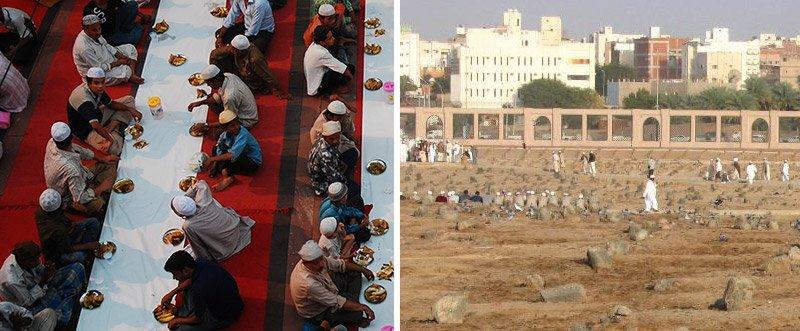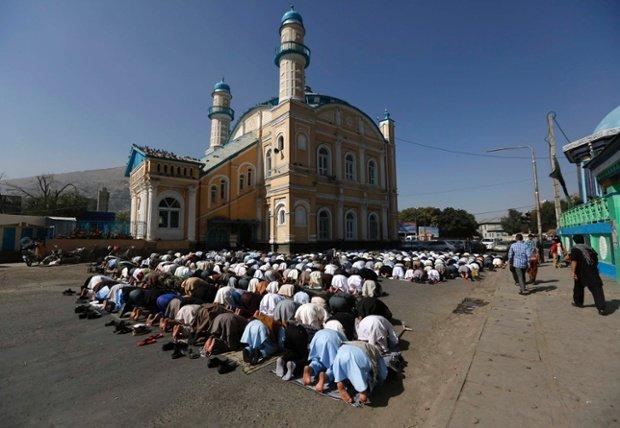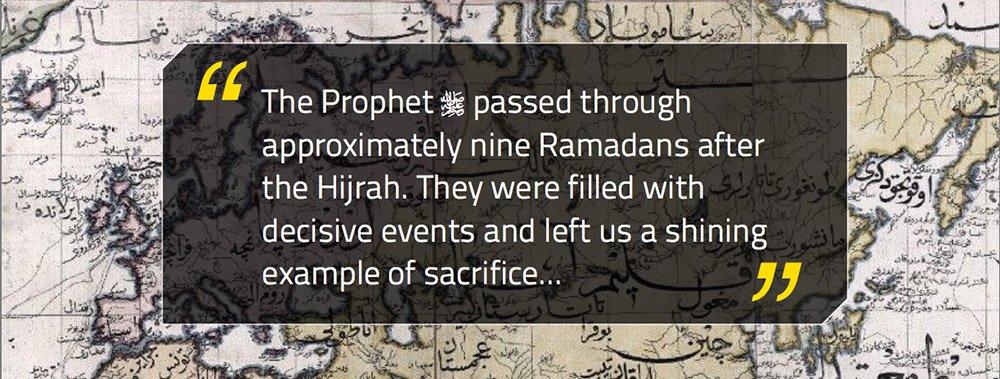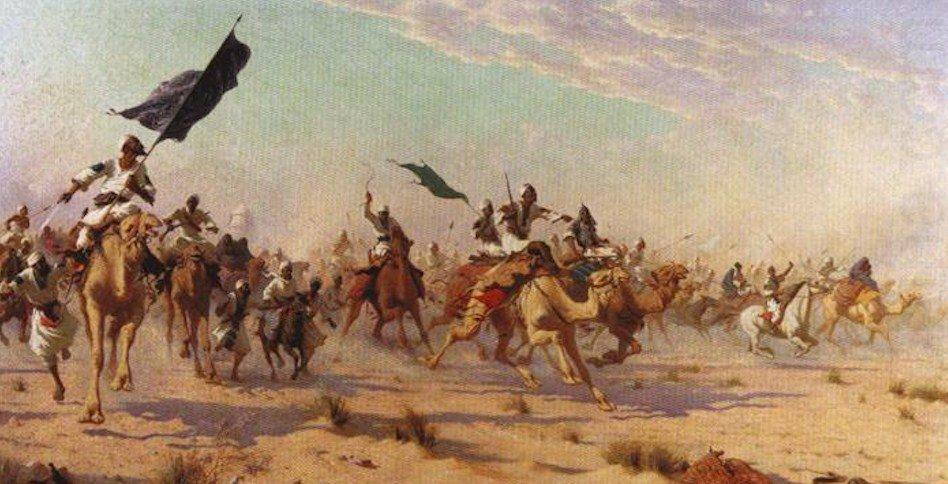I remember the beginning of Ramadan a few years ago: the festive supermarkets with their jampacked aisles, the makeshift roadside stalls outside restaurants selling crisp sambusas and subiya, the sounds of adhan emanating from masajid…
My house overlooked a Maghsalat-al-Amwaat al-Khairiyyah (a charitable organization which prepares bodies for burial in the Islamic manner), and as I walked home from the neighborhood supermarket laden with packages of food and other essentials in preparation of the next day’s fast, I caught sight of a family accompanying a bier in a hearse. The women huddled together, sobbing quietly, while the men stood at a distance in somber silence.
It struck me: While I was going home to the comfort of my home and the company of my family, this person was being dispatched alone, to answer the stern questioning of the grave. While I would be given the opportunity to fast and perform other deeds as Allah willed, this person, who had been given the same opportunity in past years, had been deprived of it this year.
Our imam and khateeb, may Allah preserve him, used to remind the congregants of the favors of Allah in allowing us to witness yet another Ramadan, by contrasting our state with those of the people of the graves, who would gladly give the world and all that is in it if they could, in lieu of the chance to worship Allah a little more, to add the tiniest good deeds to their scale that would enable them to draw closer to Paradise and take them further away from the Fire.
In a khutbah, Imam Abdul Bari al-Thubayti, may Allah preserve him, said:
“Whoever remembers death frequently is honored with three things: hastening towards repentance, contentment and energy in performing acts of worship; and whoever forgets death is punished with three things: delaying repentance, lack of contentedness and laziness in acts of worship.”
“The one who remembers death most often and the one who is best prepared to meet it. These are the truly wise, honored in this life and distinguished in the Hereafter.”
With disturbing reports of the coronavirus from all over the world, it is no wonder that our thoughts naturally turn to death and dying.
Unlike some belief systems which consider the contemplation of death “inauspicious” or “macabre”, Muslims are encouraged to regularly remind themselves and others about the inevitable end of life, and what awaits a person in the Hereafter.
In the “Book of Remembrance of Death and What Follows It” in Ihya Uloom-ud-Deen, Imam Abu Hamid al-Ghazali mentions a narration on the benefits of remembering death:
The Mother of the Believers, Aisha (may Allah be pleased with her), asked the Prophet ﷺ: “Will anyone be raised with the martyrs (on the Day of Resurrection)?” The Prophet ﷺ replied: “Yes, the one who remembers death 20 times (or more) within the space of a day and a night.”
The Prophet ﷺ once stood at the edge of a grave and called out to his Companions: “O my brothers! For this, prepare yourselves.” (Ibn Majah) And in another narration, he said: “O people! Remember often the destroyer of pleasures: death.” (At-Tirmidhi, an-Nasa’i, Ibn Majah)
The injunction to “remember death abundantly” is not a command designed to scare us into righteousness; rather, it is a positive counsel that spurs us to seize every small and big opportunity to earn the pleasure of Allah, and prepare ourselves for the Day “when neither wealth nor sons will benefit anyone, except (the one) who comes to Allah with a clean heart.” (Qur’an, 26:88)
Once a man asked the Prophet ﷺ, “Who is the wisest among the people, O Messenger of Allah?” He replied: “The one who remembers death most often and the one who is best prepared to meet it. These are the truly wise, honored in this life and distinguished in the Hereafter.” (Ibn Majah, at-Tabarani).
The remembrance of death acquires a special significance with the advent of Ramadan, since it is the season of hope and blessings and an opportunity to earn innumerable rewards that can be reaped eternally, which is open to everyone equally.
Yet, many of us greet Ramadan with a sense of complacent déjà vu, a “been-there, done-that” lassitude, that could cost us dearly.
Let’s face it: for many of us Ramadan has turned into a time for socializing with friends and extended family, spending hours preparing and sampling traditional dishes, watching TV sitcoms from iftār to ishā’ – to the extent that we even spend the precious nights of Ramadan in auto-pilot mode, performing our prayers perfunctorily before hitting the supermarkets, malls, coffee shops and internet cafes to shop or while the night away.
Somewhere at the back of our minds is the assurance that there’s always next year – or a succession of years – to count on, when we will magically have the “Ramadan of our dreams” with plenty of time to read the Qur’an, stand in prayer at night, seek forgiveness in the early morning hours, serve the ailing and poor, be hospitable to our neighbors and friends.
However, the sad truth is that as the years pass by, our energy and health dissipates and our responsibilities and distractions increase exponentially, distancing us from the mirage of the perfect Ramadan even further… until it may be too late.
The Prophet ﷺ advised us: “Hasten to do good deeds before you become busy. Are you waiting for such straitened circumstances which will make you unmindful of devotion? Or such prosperity which will make you corrupt? Or such disease which will disable you? Or such senility which will make you mentally unstable? Or sudden death? Or the Dajjaal (anti-Christ), who is the worst apprehended (sign of the Hour)? Or (are you waiting) for the Hour? That will be most grievous and bitter.” (At-Tirmidhi)
We have no guarantees that we will live to see another Ramadan, let us seize each blessing with eagerness and each opportunity to earn rewards with enthusiasm, to make this the best Ramadan of our lives.
Limited free articles. Subscribe for full access.






 Dr. Bilal Philips
Dr. Bilal Philips